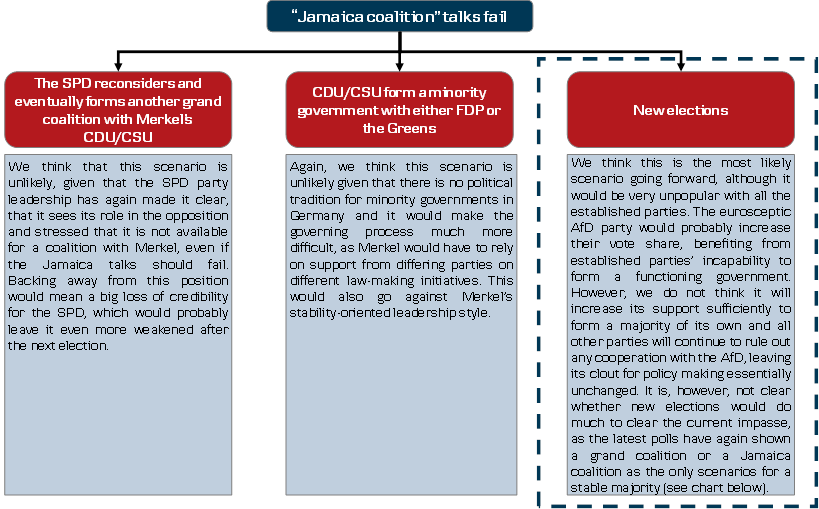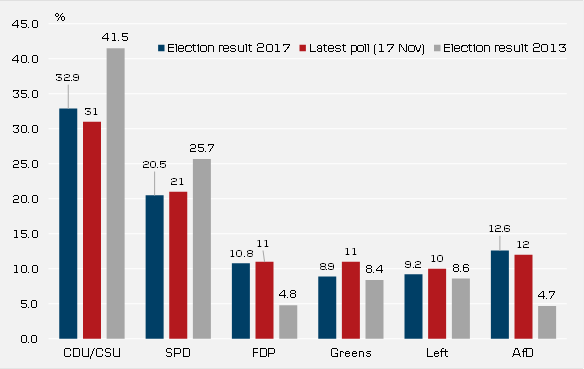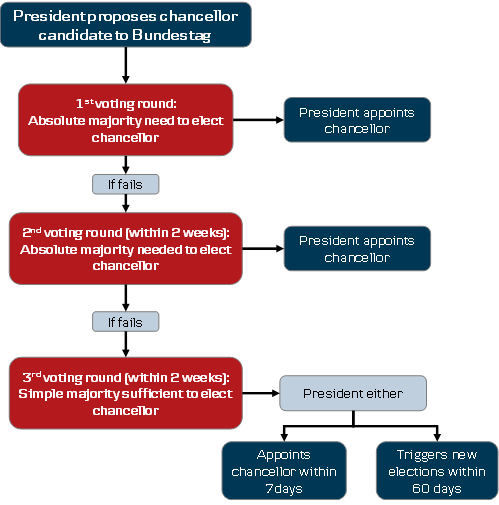German coalition talks for form a so-called “Jamaica” coalition between CDU/CSU, FDP and SPD have failed overnight. A deal had already been within reach according to party speakers, when the liberal FDP suddenly walked out from the coalition talks. For the breakdown of the talks, FDP leader Christian Lindner cited the lack of trust between the parties and still major differences in key policy areas such as energy, migration and finance, which did not provide a stable base for a new government.
Bridging the large ideological differences between the parties was always a difficult task. However, the breakdown of the Jamaica coalition talks, which had already been five weeks in the making, now leaves Angela Merkel only three options:
What is the way forward?
Should the SPD continue to rule out a grand coalition, the initiative lies with the German president Frank-Walter Steinmeier. According to Article 63 of the constitution he has the duty to propose a chancellor candidate to the new Bundestag “within an appropriate time period”. Normally, he would do so, after the coalition negotiations have succeeded to find a stable majority, however, in the current environment the president would probably still propose Angela Merkel as chancellor candidate given that her party retains the most seats in parliament. If Merkel cannot secure an absolute majority in the first two voting rounds, a simple majority (highest number of votes) suffices for the third voting round to be elected as chancellor. However, if Merkel is elected only with a simple majority in the third round, the president has the discretion to either appoint Merkel as chancellor of a minority government within seven days or dissolve parliament and call new elections within sixty days (see below). Merkel has said that she will meet with president Steinmeier today to discuss the next steps, but will remain in office as “placeholder” chancellor for now.
Overall the recent developments mean that political uncertainty has returned to Germany in the meantime and the government formation process will probably drag on well into 2018. This also means that any swift progress on potential eurozone reforms as initiated by the French president Emmanuel Macron will be on hold for now.



